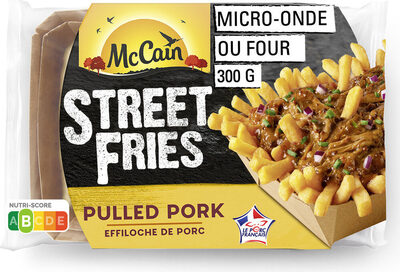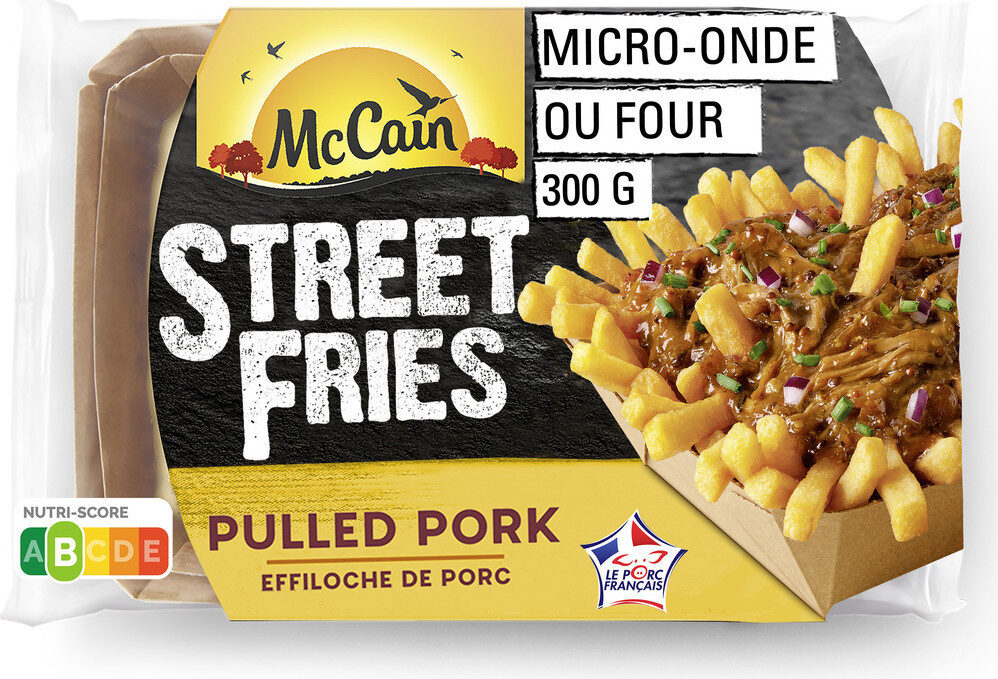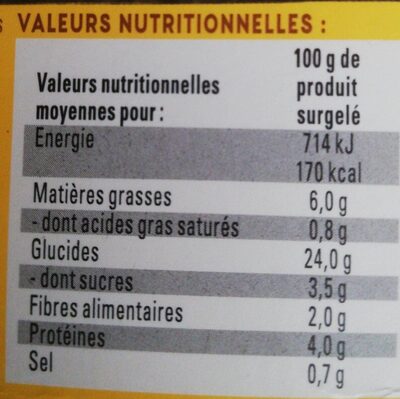Street fries pulled pork - MCCAINE - 300 g
This product page is not complete. You can help to complete it by editing it and adding more data from the photos we have, or by taking more photos using the app for Android or iPhone/iPad. Thank you!
×
Barkod: 8710438121797 (EAN / EAN-13)
Količina: 300 g
Брендови: MCCAINE
Категорије: en:Meats and their products, en:Meals, en:Meals with meat, en:Pork meals
Oznake, sertifikati, nagrade: en:French meat, en:French pork, Nutriscore, Nutriscore B
Poreklo sastojaka: Француска
Mesto u kojem se proizvodi ili prerađuje: Harnes France
Traceability code: FR 22.182.001 CE - Plélo (Côtes-d'Armor, France)
Link to the product page on the official site of the producer: https://www.mccain.fr/street-fries/stree...
Prodavnice: carrefour.fr, Auchan, Leclerc
Matching with your preferences
Report a problem
Data sources
Product added on од kiliweb
Last edit of product page on од quechoisir.
Страницу производа такође уредио charlesnepote, driveoff, openfoodfacts-contributors, roboto-app, toma-stupar, yuka.sY2b0xO6T85zoF3NwEKvlhFEfOWHqxPibj7umG6GmfGjHLG4OspR5I3gMas, yuka.sY2b0xO6T85zoF3NwEKvlk9gDfHyoS3rNyzVomKZyNWrKae3Wc9s64P9Cqs, yuka.sY2b0xO6T85zoF3NwEKvlmZ7aNnXs2j_MUDttlTU39zRK8exOdFZuLihCKs.












